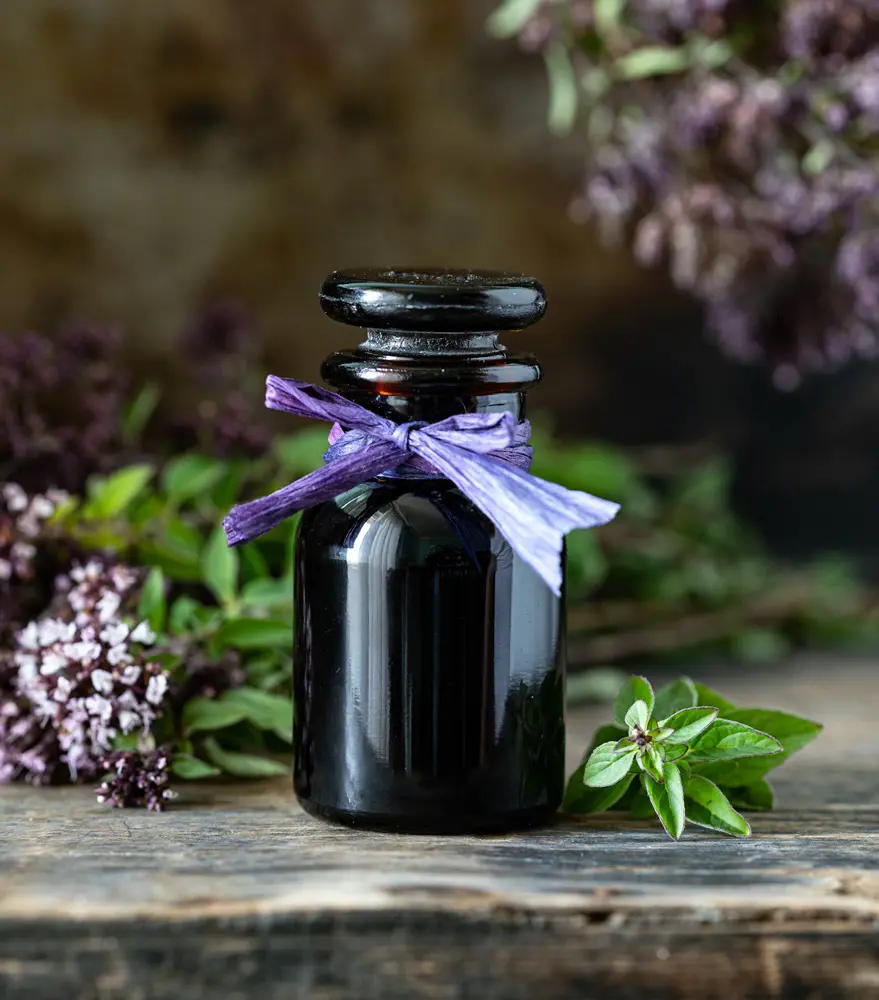11 Benefits Of Ginger To Improve Your Health And Well-Being
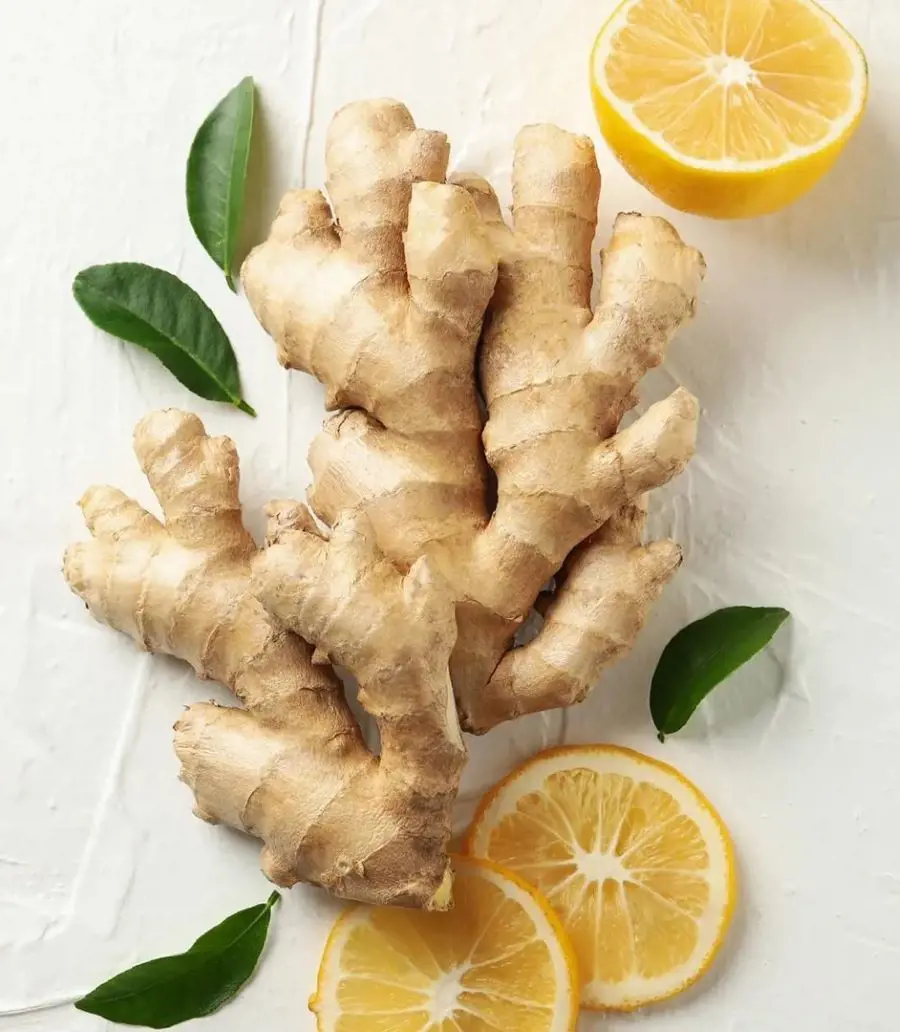
This post may contain affiliate links. If you make a purchase through links on our site, we may earn a commission.
Ginger has been used for both culinary and medicinal purposes since ancient times. Its wide array of health benefits, stemming from its anti-inflammatory, anti-nausea, and other properties, include potential advantages such as managing arthritis, alleviating menstrual symptoms, and supporting heart health, among others.
The distinctive aroma and taste of ginger come from its natural oils, with gingerol being the most significant among them. Gingerol is the primary bioactive compound in ginger, responsible for many of its medicinal properties. Before we talk about ginger's established health benefits, let's explore what sets it apart.
What is Ginger?
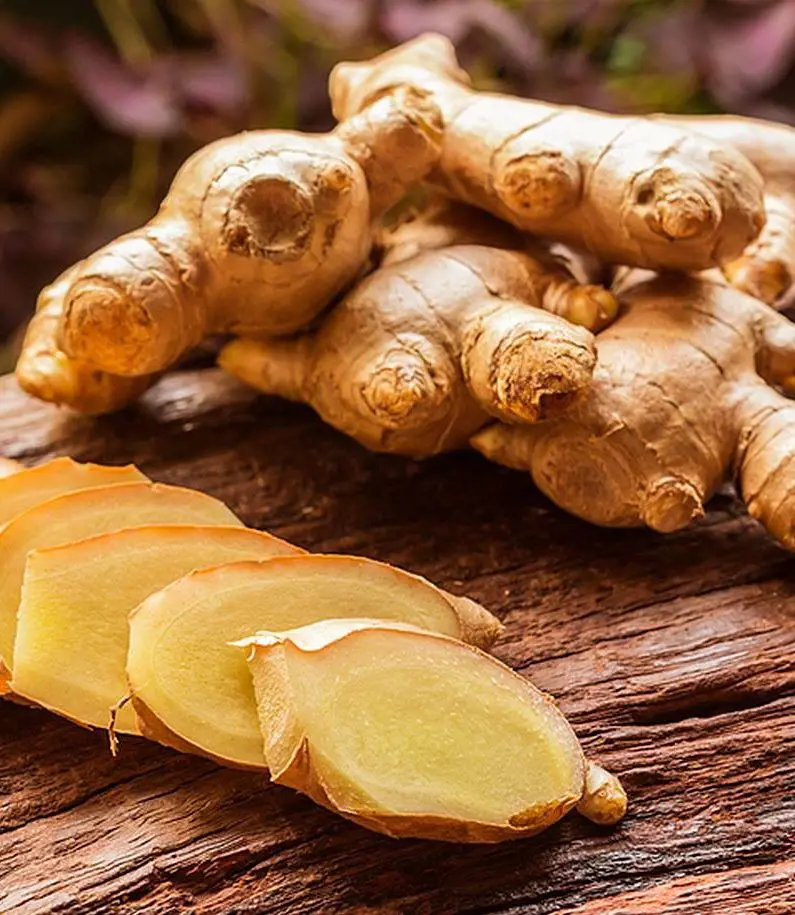
Ginger, a spice and traditional medicine, comes from a flowering plant native to Southeast Asia. It belongs to the Zingiberaceae family, which also includes cardamom and turmeric. It was one of the earliest Asian spices brought to Europe through the spice trade, having been used by ancient Greeks and Romans.
The part of the plant used as a spice is the rhizome, the underground part of the stem, often referred to as ginger root or simply ginger. Ginger can be used fresh, dried, powdered, or as an oil or juice. It's a common ingredient in recipes, processed foods, home remedies, and cosmetics.
Nutrition and Dosage
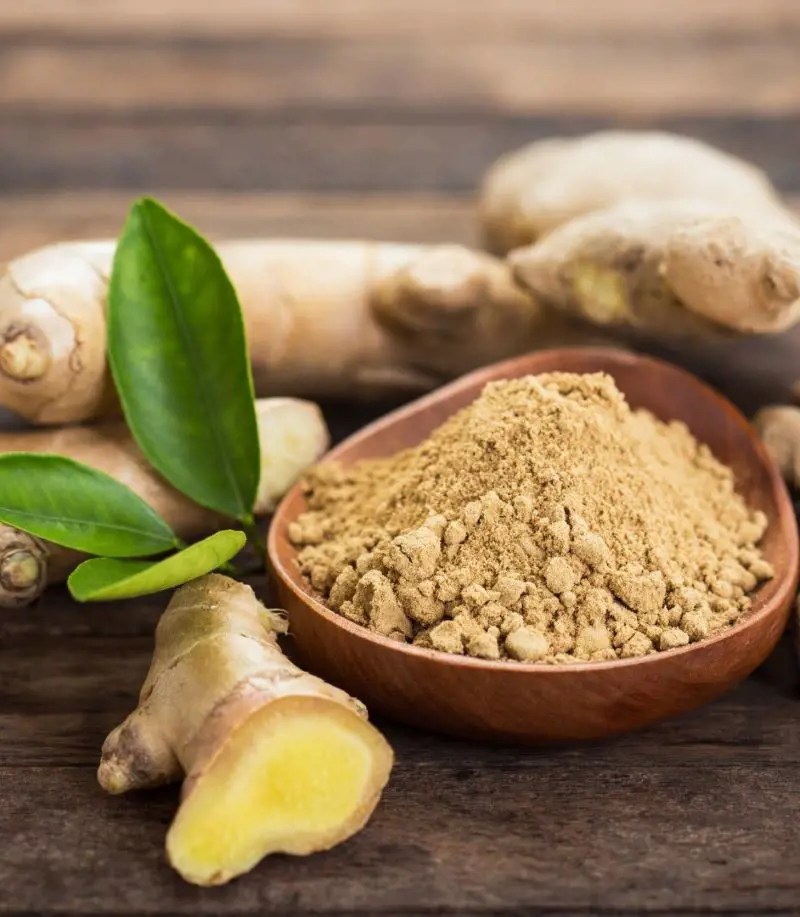
Ginger is rich in antioxidants, but it doesn't offer many vitamins, minerals, or calories. According to the Department of Agriculture (USDA), 2 teaspoons of ginger contain just 4 calories and aren't a significant source of any particular nutrient.
The majority of research on ginger has focused on dosages ranging from 250 milligrams (mg) to 1 gram, typically taken one to four times a day. The Food and Drug Administration (FDA) regards ginger root as generally safe, and their approved daily intake recommendation goes up to 4 grams.
Health Benefits of Ginger

Ginger has a rich history of use in traditional medicine and as a dietary supplement in China, India, and Japan for many centuries. Numerous studies have explored its potential health benefits for various conditions.
Yet, it's important to note that the effectiveness of ginger for treating specific diseases remains uncertain, and the FDA has not approved it as a drug. However, ginger is associated with various health benefits and is considered a traditional remedy.
Ginger is believed to have anti-inflammatory, antibacterial, and antiviral properties, and it is linked with several potential medicinal uses. Here are some of them:
1. Support the Immune System

Ginger's warming properties help promote sweating, which triggers a protective response. This response involves the secretion of demicidin, an antimicrobial protein, by eccrine sweat glands, supporting the body's innate immune system. It is commonly used to alleviate the chills of a cold.
In 2017, a large cross-sectional study indicated that daily ginger intake might have a positive impact on the immune system. This might help prevent chronic diseases and assist in recovering from ailments like the common cold and flu. Nonetheless, further research is needed to confirm the specific effects of ginger on the immune system.
2. May Treat Morning Sickness and Other Forms of Nausea

Ginger may offer positive effects against nausea, including pregnancy-related nausea, generally known as morning sickness. It may help ease nausea and vomiting for those undergoing specific types of surgery and may also be helpful in reducing chemotherapy-related nausea.
It's generally safe to consume ginger, but it's wise to consult a doctor before consuming large amounts during pregnancy, especially if you're close to labor or have a history of pregnancy loss. Additionally, ginger may also be unsuitable for people dealing with clotting disorders.
3. May Have Anti-Inflammatory Properties

Fresh ginger root contains volatile oils with active components, including gingerol. Gingerol, a potent anti-inflammatory compound, is thought to be responsible for the pain relief and improved mobility experienced by people with osteoarthritis or rheumatoid arthritis who consume ginger regularly.
In 2015, a review concluded that taking ginger orally is "modestly efficacious and reasonably safe" for treating inflammation associated with osteoarthritis. Additionally, a 2017 review of 16 clinical trials suggested that the phytochemical properties of ginger could help combat inflammation. However, further research is required.
4. Can Help Fight Infections

The antimicrobial properties of ginger could make it beneficial for fighting fungal and bacterial infections. Laboratory studies have found that ginger is particularly good at halting the growth of bacteria like:
- Escherichia coli (E. coli), which causes intestinal infections
- Staphylococcus aureus (S. aureus), responsible for a range of diseases
- Candida albicans (C. albicans), causes fungal infections in the mouth
Fresh ginger, in particular, is recommended as it has the highest concentration of gingerol, which benefits your health when it comes to combating infections and preventing bacterial development.
5. May Help with Weight Loss

Both human and animal studies indicate that ginger may help manage body weight and waist-hip ratio scores. Its ability to promote weight loss may be attributed to certain mechanisms, such as its anti-inflammatory effects. It also helps control insulin levels, improves metabolism, and aids in workout recovery.
One 2019 review stated that ginger supplementation significantly reduced body weight, along with the waist-hip ratio and hip ratio in people with obesity or overweight. Ginger helps with weight loss by boosting metabolism and creating a feeling of satiety to prevent overeating.
6. May Improve Brain Function

Some studies show that certain compounds present in ginger, such as 6-gingerol and 6-shogaol, may help prevent degenerative diseases such as Alzheimer’s, multiple sclerosis, and Parkinson's disease.
Chronic inflammation and oxidative stress are key factors in age-related cognitive decline and Alzheimer's disease. Several animal studies indicate that antioxidants and bioactive compounds found in ginger can reduce brain inflammation, potentially preventing cognitive decline.
7. Eases Period Pains

Consuming ginger during the first 3-4 days of a period may help relieve dysmenorrhea, commonly known as menstrual pain. Some studies suggest that it may be more effective in alleviating pain than medications such as ibuprofen, acetaminophen, and diclofenac.
Furthermore, ginger's anti-inflammatory properties may help relieve the bloating often associated with PMS, making your period more manageable. However, if you experience unusually heavy blood flow, it's advisable to exercise caution and consult your doctor for further guidance.
8. Support Cardiovascular Health

Some evidence suggests that ginger extract may prevent cardiovascular disease. In a 2017 study of 4,628 people, daily ginger consumption was linked to protection against coronary heart disease, diabetes, high blood pressure, hyperlipidemia, cerebrovascular disease, and fatty liver disease, among other chronic conditions.
Nevertheless, more research is needed to determine if ginger can support the treatment of cardiovascular disease. Meanwhile, a small 2016 study showed that ginger extract helped reduce heart abnormalities in rats with diabetes. The authors suggested this reduction might be due to the extract's antioxidant properties.
9. Eases Arthritis Symptoms

Ginger has anti-inflammatory properties that can help reduce swelling, offering potential relief for symptoms of both rheumatoid arthritis and osteoarthritis (OA). You can take ginger orally or apply a ginger compress or patch to alleviate pain and swelling.
Osteoarthritis (OA) involves joint degeneration, causing symptoms like joint pain and stiffness. One review, mostly involving individuals with knee OA, found that ginger might help reduce pain and disability. In these studies, participants took 0.5–1 gram of ginger daily for 3–12 weeks. However, other research has not shown the same effects.
10. May Help Reduce Cancer Risk

Ginger may possess anticancer properties due to its gingerol content along with various other antioxidant and anti-inflammatory compounds. Emerging evidence suggests that these components might help lower the risk of gastrointestinal cancers, such as liver, pancreatic, and colorectal cancer.
In one study, 20 individuals with a high risk of colorectal cancer took a daily dosage of 2 grams of ginger for 28 days. The study's findings showed fewer cancer-like changes in the participants' intestinal lining than expected. However, most ginger and cancer research has been done on non-human subjects.
11. Can Help Treat Chronic Indigestion

Ginger can potentially ease indigestion by helping food move through the stomach more quickly. Functional dyspepsia is when someone experiences indigestion symptoms like stomach pain, bloating, fullness, belching, and nausea without a clear cause. It's often linked to irritable bowel syndrome (IBS).
In a study, scientists discovered that consuming ginger and artichokes before a meal notably reduced indigestion symptoms in people with functional dyspepsia compared to a placebo. Nevertheless, more research is required to prove the claim.
How to Add Ginger to Your Diet?
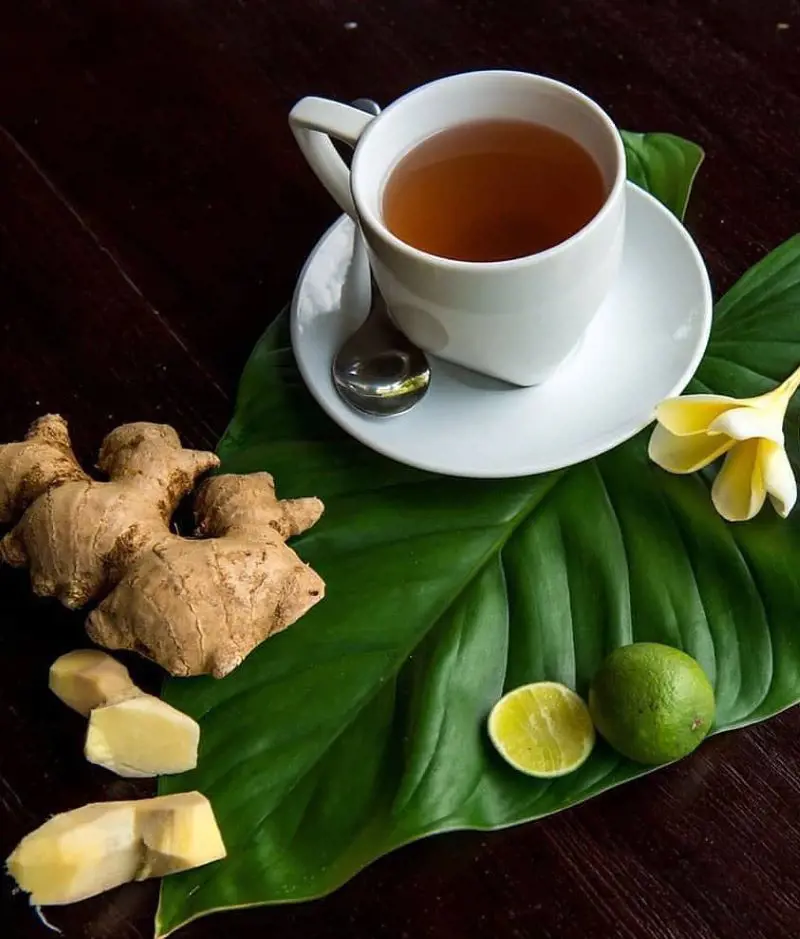
Here is how to enjoy ginger in various tasty and healthy ways:
- Ginger tea: This healthy herbal tea can be consumed at any time of day. It can kickstart your morning and aid digestion after meals. Try adding lemon or honey, or explore different flavored tea bags like lemon and ginger or ginger green tea.
- Ginger juice shot: A zesty and refreshing way to begin your day. This concentrated juice is often mixed with honey, turmeric, cayenne pepper, or citrus juice.
- Use ginger in sweet and savory dishes: Fresh ginger offers a sweeter and more complex flavor, perfect for soups, casseroles, and stir-fries. Ground ginger packs a stronger punch and suits baked goods, curries, and spice blends.
- Preserved ginger: You can also explore preserved forms of ginger like stem ginger (ginger balls in syrup) and crystallized ginger (dried ginger with a sugar coating).
Is Ginger Safe for Everyone?

While ginger is generally safe for many health concerns, it can have strong effects and may not be suitable for certain people, including:
- Those with a history of kidney stones containing oxalates.
- People who often experience heartburn or acid reflux.
- Individuals with low blood pressure or taking blood pressure medications, as ginger might lower blood pressure.
There's no evidence to suggest that ginger is unsafe during pregnancy or while breastfeeding, but it's best to consult with your GP (general practitioner) or midwife to be sure. If you're uncertain or have concerns about its safety for your specific situation, consider seeking guidance from your GP.
Probable Side Effects of Ginger
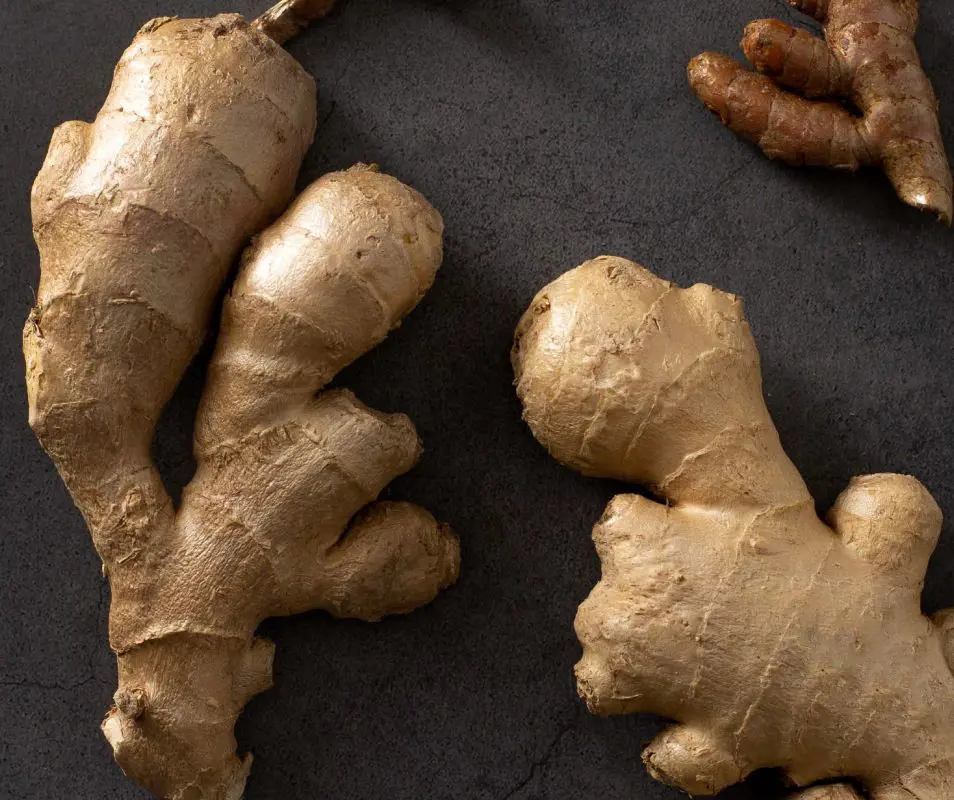
Side effects from ginger are rare, but taking higher daily doses (around 5 grams) increases the risk. It can lead to mild issues like heartburn, diarrhea, burping, and stomach discomfort. Using ginger on the skin is usually safe for short-term use, but it might cause skin irritation in some individuals.
Precautions
- Bleeding disorders: Ginger contains salicylates, a substance similar to aspirin, which can thin the blood and be problematic for people with bleeding disorders.
- Heart conditions: High doses of ginger could worsen certain heart conditions.
- Pregnancy: Eating ginger in foods is generally safe. Taking it as medicine by mouth during pregnancy is possibly safe but might increase the risk of bleeding, so consult your healthcare provider. It's considered safe for morning sickness.
- Surgery: Ginger may slow blood clotting and lead to increased bleeding during and after surgery. It's advisable to stop using ginger at least 2 weeks before a scheduled surgery.
Recent posts
Nutrition
Nutrition
Is Cheese Good for Weight Loss? The Ones To Eat And Avoid
Cheese is considered an off-limit for many when it comes to losing weight. But that’s not necessarily true! Rather, cheese is a bit of a mixed bag and can actually have some benefits for weight loss when enjoyed mindfully. While you decide to i...
Nutrition
Oregano Oil Benefits and How To Use
Popular for high concentrations of active molecules like carvacrol and thymol, oregano oil has antioxidant, antifungal, and anti-inflammatory effects. Because of such attributes, it is used in culinary practices and is regarded as a beneficial addit...
Nutrition
20 Heart Healthy Foods You Must Include In Your Diet
Your heart is your body's engine that functions nonstop to maintain your vitality. It's time to give back to your heart which does so much to you. Eating proper heart-healthy food is one of the simple and effective ways to boost your heart health. Ho...
Nutrition
Hard Boiled Eggs Nutrition, Benefits And How To Eat?
Packed with vital vitamins, minerals, and protein, hard-boiled eggs are a nutritious powerhouse that gives your body endurance and vitality. They are adaptable, simple to make, and pair well with various types of healthy diets. These eggs are rich in...
Nutrition
Duck Eggs Benefits, Nutrition, And How To Eat?
Boasting better taste and texture than regular chicken eggs and significantly bigger, duck eggs are nutritional powerhouses. They contain very high protein content, fatty acids and vitamins and minerals to make them ideal for anyone who would wish to...
Nutrition
18 Fat Burning Smoothies For Weight Loss
The weight loss journey is tough if you have to get on the same path day after day, facing cravings and temptations along the way. We suggest you stop making it a monotonous struggle and make it a flavorful adventure instead. One of the easiest and m...

